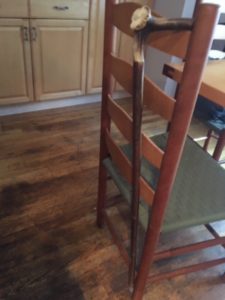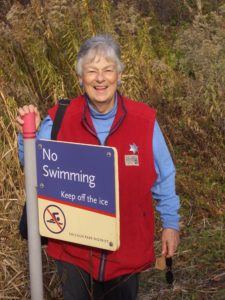Saturdays with Seniors: What’s That Hidden in the Back of Anu’s Closet?
August 15, 2020 • 7 Comments • Posted in guest blog, memoir writing, travel
I am pleased to introduce Anu Agrawal as our Saturdays with Seniors guest blogger today. Anu immigrated to America from India in 1969 and is a writer in the “Me, Myself and I” memoir class that is meeting via Zoom now. Her husband Pawan sat in for a while when the class was meeting at the Chicago Cultural Center, and it was easy to believe Anu when she said the two of them “kept the postal service on their toes” while living apart from each other early on in their marriage. What a charming couple!
by Anu Agrawal
Peeking into my closet the other day, I came across one small black suitcase. This suitcase came to America with my husband when he came here for the first time nearly 52 years ago. I should be jealous of this suitcase: it has been my husband’s companion for a longer time than me! Maybe that is why I have kept it hiding in the back of my closet all these years.
I still remember when my husband was leaving India for America. My sister-in-law (my husband’s elder brother’s wife) packed his suitcase. She did a good job packing everything neatly. She used the space to its max. At that time I’d been married for three months only, so in their opinion I was not mature or experienced enough to do such a major job. I was just fine with that. I did not want to be blamed if any of his stuff was left behind.
One year later, when I came to America for the first time, she packed my suitcase, too. After leaving them behind and coming here, I became more mature and independent.
Anyway, back to the suitcase. This suitcase is made of soft vinyl. It does not have a zipper, just two clamps and a belt in the middle to close it tightly and lock it. When it’s closed, anyone can still insert his or her hand in the sides and pull out the things from it. At that time in India, this kind of style worked: most of the people traveled by train and kept their luggage with them under the seat where they could keep an eye on it.
On this suitcase my husband’s name is written in white bold letters which was the requirement for air travel. I do not know what kind of ink was used, but even today it is quite bright. This suitcase is going to stay with us forever. Its existence is a constant reminder of the warmth of India and adventures of America.
This suitcase probably will survive longer than us. Our grandchildren can preserve it as a family antique. It will be a physical proof of their grandparents coming to America.



